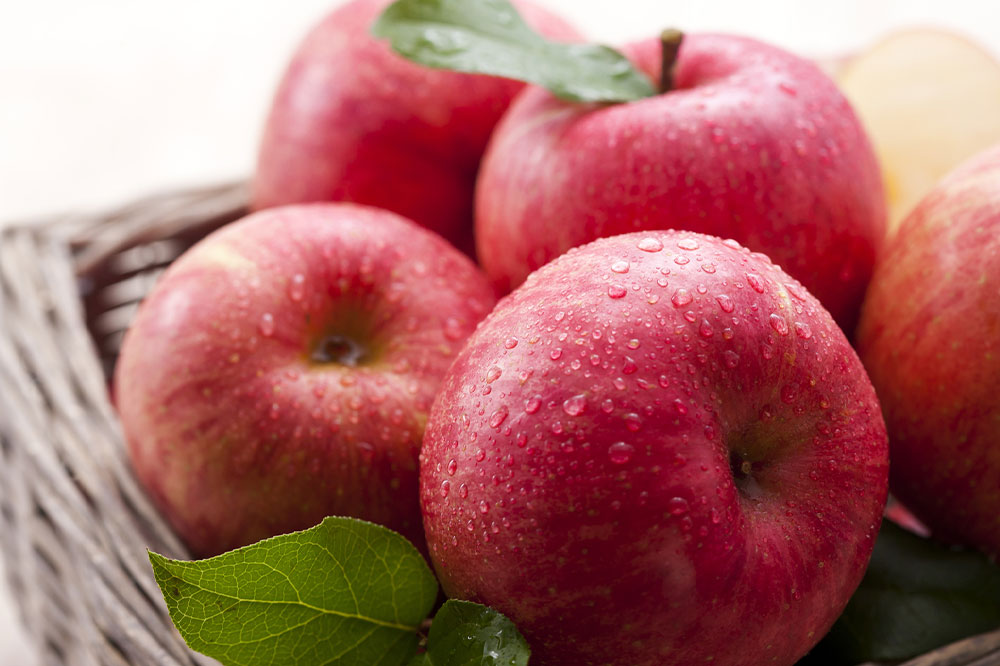Comprehensive Guide to Nutrition for Robust Lung Health
This comprehensive guide explores vital nutrients and foods that support lung health, emphasizing dietary strategies to boost respiratory function and complement medical treatments. From bananas to tomatoes, discover how nutrition can help maintain strong, healthy lungs and reduce inflammation, benefiting those with respiratory conditions or seeking preventive care.

Comprehensive Guide to Nutrition for Robust Lung Health
Lung health is essential for overall well-being, as the lungs facilitate vital oxygen exchange, supporting every cell in the body. However, factors such as environmental pollution, lifestyle choices, and respiratory illnesses like chronic obstructive pulmonary disease (COPD), asthma, and pulmonary fibrosis can compromise lung function over time. To maintain optimal lung health, integrating a variety of nutrient-dense foods into your daily diet is a proven strategy that can bolster respiratory resilience and mitigate symptoms associated with lung conditions.
Understanding which foods support lung health is crucial. Here, we explore the most effective foods known for enhancing pulmonary function, reducing inflammation, and supporting immune defenses.
Bananas
Rich in potassium, bananas are an excellent addition to a lung-healthy diet. Potassium plays a vital role in maintaining fluid balance within the body, supporting healthy blood pressure, and aiding digestion—all of which are essential for proper lung function. The presence of high potassium levels has been linked to improved lung capacity, especially during developmental stages in childhood, fostering stronger respiratory health into adulthood. Consuming bananas regularly can help keep pulmonary tissues hydrated and functioning optimally, potentially easing breathing difficulties caused by dehydration or imbalance.
Beetroot
Beetroots are powerhouses of vital nutrients including nitrates, magnesium, and potassium. Nitrates, in particular, are converted into nitric oxide in the body—a compound that relaxes blood vessels, improves blood flow, and reduces blood pressure. Enhanced blood circulation ensures that oxygen is more effectively delivered to lung tissues and other organs, thereby boosting overall respiratory performance. Additionally, the antioxidants present in beets combat oxidative stress, reducing inflammation and protecting lung tissues from damage caused by pollutants and toxins.
Turmeric
The vibrant yellow spice turmeric contains a potent compound called curcumin, which has been extensively studied for its powerful anti-inflammatory properties. Chronic inflammation in the airways is a common hallmark of respiratory conditions such as asthma and bronchitis. Incorporating turmeric into your diet can help decrease airway inflammation, alleviate breathing difficulties, and potentially improve lung function. Regular consumption, whether in cooking or as a supplement, supports lung tissue health and may reduce the severity of respiratory symptoms.
Apples
Apples are rich in quercetin, a flavonoid with notable antioxidant, antihistamine, and anti-inflammatory effects. Elevated intake of apples has been associated with slower decline in lung function over time. Eating five or more apples weekly may reduce the risk of developing chronic lung diseases such as asthma, COPD, and even lung cancer. The phytochemicals in apples also help modulate immune responses, decreasing airway hyperreactivity and inflammation, thereby promoting respiratory comfort and health.
Tomatoes
Tomatoes are an abundant source of lycopene, vitamin C, and potassium. Lycopene, a powerful antioxidant, plays a key role in defending lung cells from oxidative stress induced by pollutants and smoking. Vitamin C supports immune function and collagen synthesis, which are vital for repairing lung tissues. Regular consumption of tomatoes can reduce airway inflammation, improve breathing, and support the body's resilience against respiratory pathogens and environmental toxins.
These dietary recommendations should be viewed as complementary strategies alongside medical treatments for existing lung conditions. For example, idiopathic pulmonary fibrosis (IPF), a progressive and incurable lung disease, is managed with FDA-approved medications like Esbriet® (pirfenidone). Such drugs help slow disease progression, but dietary support can enhance overall lung health and patient well-being. Similarly, lung cancer treatments such as IMFINZI® (durvalumab) and GAVRETO (pralsetinib) target specific cancer types, aiming to reduce tumor growth and improve survival rates. Combining pharmacological approaches with nutritional support provides a holistic strategy to optimize lung health and improve quality of life.





